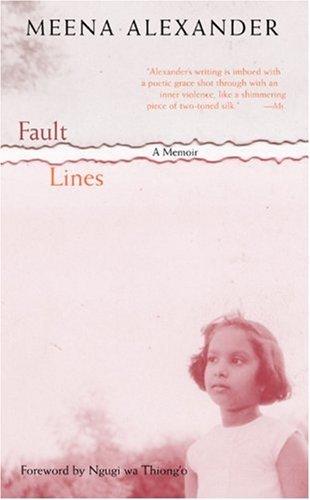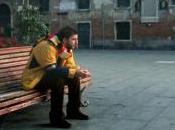
Year of first publication: 1993Genre: memoirCountry: India/USA
A few days ago, while I was speaking with a colleague, I claimed that a "memoir" is different from an "autobiography", but when asked for a clarification I stumbled on my own words. Now I've looked it up on google and I found out that a distinction does exist, but it's quite nuanced. Instead of lecturing you, I'll quote Gore Vidal, who said 'a memoir is how one remembers one's own life, while an autobiography is history, requiring research, dates, facts double-checked'. A memoir can leave out some facts, even important ones, and focus on a particular aspect of the author's life, even lingering on considerations and reflections regarding one's life.Meena Alexander is one of the most important contemporary South Asian American poets. She has published several collections of poems and two novels. This book is part of a series called the Cross-Cultural Memoir, published by the Feminist Press at CUNY, the university where Meena Alexander teaches creative writing. It centres on the author's exploration of identity through different migrations. Meena Alexander's family is from Kerala, but she spent her childhood and adolescent years in the Sudan, where her father was working as a metereologist. She spent her summers in the ancestral home of her family in Kerala, but then returned to the Sudan, giving life to a tangle of languages (Malayalam, English, Arabic, French, Hindi...) and affiliations. In addition, she worked on her PhD in England and married an American, making of Manhattan her home since the 1980s. The book is also an exploration of what it means to be a poet and a woman, to write in English when your first language is another, to be Indian in America and, ultimately, what it means to be an (Asian) American poet. Alexander's poetic background is so evident in the book that it hardly feels like a memoir, even allowing "strands of poetry" to fit in the book. It raises many important issues from motherhood to postcolonialism without sounding banal: ‘Sometimes I think I could lift these scraps of space and much as an indigent dressmaker, cut them into shape. Stitch my days into a patchwork garment fit to wear’ (p.30).There are many elements in the memoir that acquire almost a metaphorical aura that yet remains ineffable and that melt into the words of her poems: the stone-eating girl, the barbed wires, the alphabets of flesh, the well-jumped women and so on. In the more recent part of the story, when Meena lives in Manahattan, there are echoes of the many poets who wrote about New York City. Walt Whitman is of course the first who comes to mind. Ngugi wa Thiong’o, in the preface to the expanded edition of "Fault Lines", writes : ‘Among the numerous global allusions that litter the pages of “Fault Lines” is Walt Whitman. Like him, she is a poet who contains multitudes and, not surprisingly, the word multitude is among the most potent of those that frequent these pages'. However, what comes to MY mind is also Garcia Lorca's 'Poeta en Nueva York', where he addressed the problem of racial minorities in America. I wonder if that was also an influence.When we speak of Indian writing in English we hardly name any poets, as if they were minor figures, hardly comparable to best-selling authors like Salman Rushdie or Arundhati Roy. Have you recently seen any book by a contemporary poet on the shelves of a book shop?






